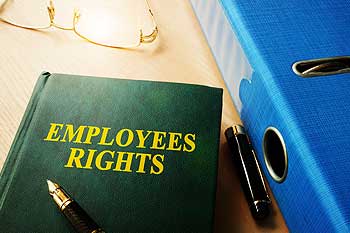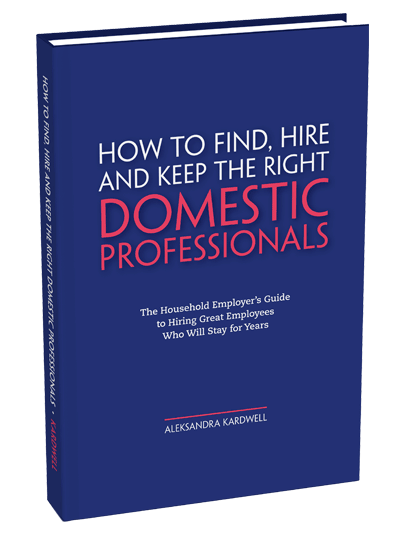Household Staffing > Domestic Workers Rights 1 > Domestic Workers Rights 2
2) Equal Employment Opportunities Commission (EEOC) Requirements

EEOC laws protecting workers against employment discrimination cover the following:
- Unfair treatment because of a person’s race, color, religion, sex (including pregnancy, gender identity, and sexual orientation), national origin, age (40 or older), disability or genetic information.
- Harassment by managers, co-workers, or others in a person’s workplace, because of the individual’s race, color, religion, sex (including pregnancy, gender identity, and sexual orientation), national origin, age (40 or older), disability, or genetic information.
- Denial of a reasonable workplace accommodation that a person needs because of their religious beliefs or disability.
- Retaliation because a person complained about job discrimination or assisted with a job discrimination investigation or lawsuit.
It is important to note that not all workers are covered by the EEOC’s laws. The EEOC website explains,
“An employer must have a certain number of employees to be covered by the laws we enforce. This number varies depending on the type of employer (for example, whether the employer is a private company, a state or local government agency, a federal agency, an employment agency, or a labor union) and the kind of discrimination alleged (for example, discrimination based on a person’s race, color, religion, sex (including pregnancy, gender identity, and sexual orientation), national origin, age (40 or older), disability or genetic information).”
Below is more in-depth information from the EEOC’s website about when the organization’s laws apply:
General Coverage
If an employee has a complaint against a business (or some other private employer) that involves race, color, religion, sex (including pregnancy), national origin, age (40 or older), disability or genetic information, the business (or other organization) is subject to the EEOC regulation if it has 15 or more employees who worked for the employer for at least 20 calendar weeks (in this year or last).
Age Discrimination and Coverage
If an employee’s complaint involves age discrimination, the business (or other organization) is subject to the laws the EEOC enforces if it has 20 or more employees who worked for the organization for at least 20 calendar weeks (in this year or last).
Equal Pay Act and Coverage
Virtually all employers are subject to the Equal Pay Act (EPA), which makes it illegal to pay different wages to men and women if they perform substantially equal work in the same workplace.
Deciding Coverage of Business/Private Employers
Figuring out whether you are covered by the EEOC’s laws can be complicated. If you aren’t sure about whether coverage exists, you should contact one of the EEOC field offices as soon as possible to get help with making that decision. It is also important to keep in mind that, even if an employer is not subject to regulation by the EEOC for employment discrimination, such employer will likely be regulated by state and local authorities for same. Both New York State and New York City, for example, have promulgated Human Rights laws that (among other things) prohibit unlawful discrimination by employers.
You can find the appropriate EEOC office to contact by using the lookup tool on the EEOC’s website.
Lastly, it’s important to point out that people not employed by an employer, such as independent contractors, aren’t covered by the EEOC’s anti-discrimination laws. Figuring out whether a person is an employee of an organization (as opposed to a contractor, for example) can be complicated. Again, if you are unsure about whether you are subject to the regulations, it’s best to contact one of the EEOC’s field offices (or your attorney) to get help with evaluating applicability. (Please see the URL listed just above for finding the appropriate field office.)
Read Part III of our legal information here: Domestic Workers Rights – The Legal Landscape of Household Staffing, Part III
Looking to learn more about today’s best practices for hiring household staff? Take advantage of our special offer below!
|
|
Principals, Managers & Assistants – Now you can request a complimentary copy of the newly released book for household employers by Hamptons Employment Agency, Inc. Founder and President, Aleksandra Kardwell…How to Find, Hire, and Keep the Right Domestic Professionals The Household Employer’s Guide to Hiring Great Employees Who Will Stay for Years Request your complimentary copy today by clicking here or on the book image at left. |
Or, contact us today for a free, no-obligation, privacy-assured phone consultation. Give us a call at one of our four locations listed below. We look forward to hearing from you regarding your domestic staffing needs.
Hamptons Office: 631-204-1100
New York City Office: 212-810-9828
Florida Office: 561-560-0001
Or, use our brief and easy online Staffing Inquiry Form.
We look forward to hearing from you regarding your Household Staffing needs.

